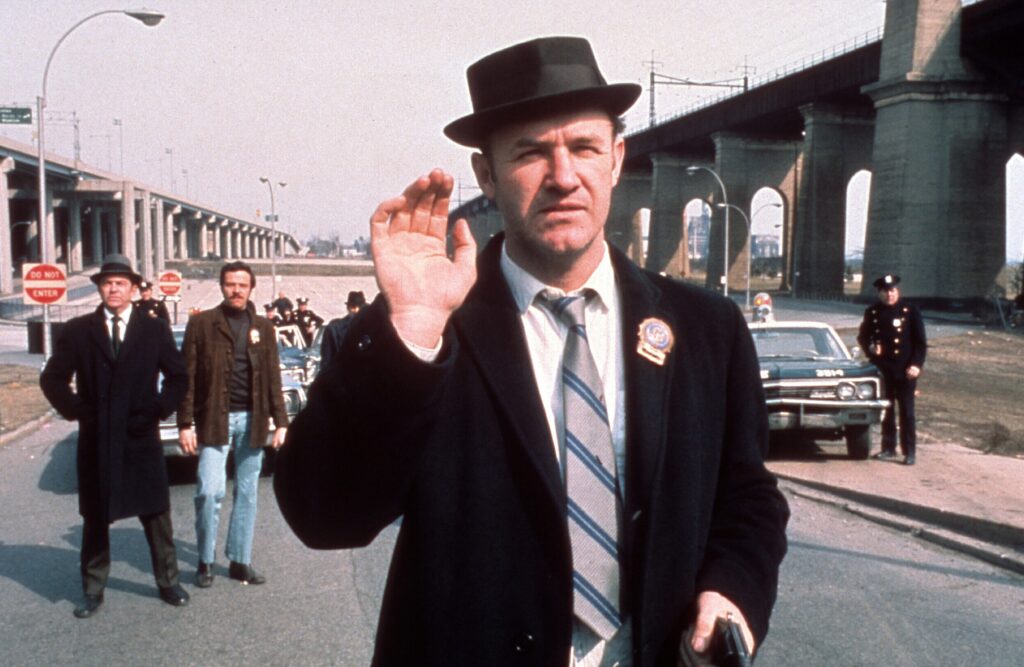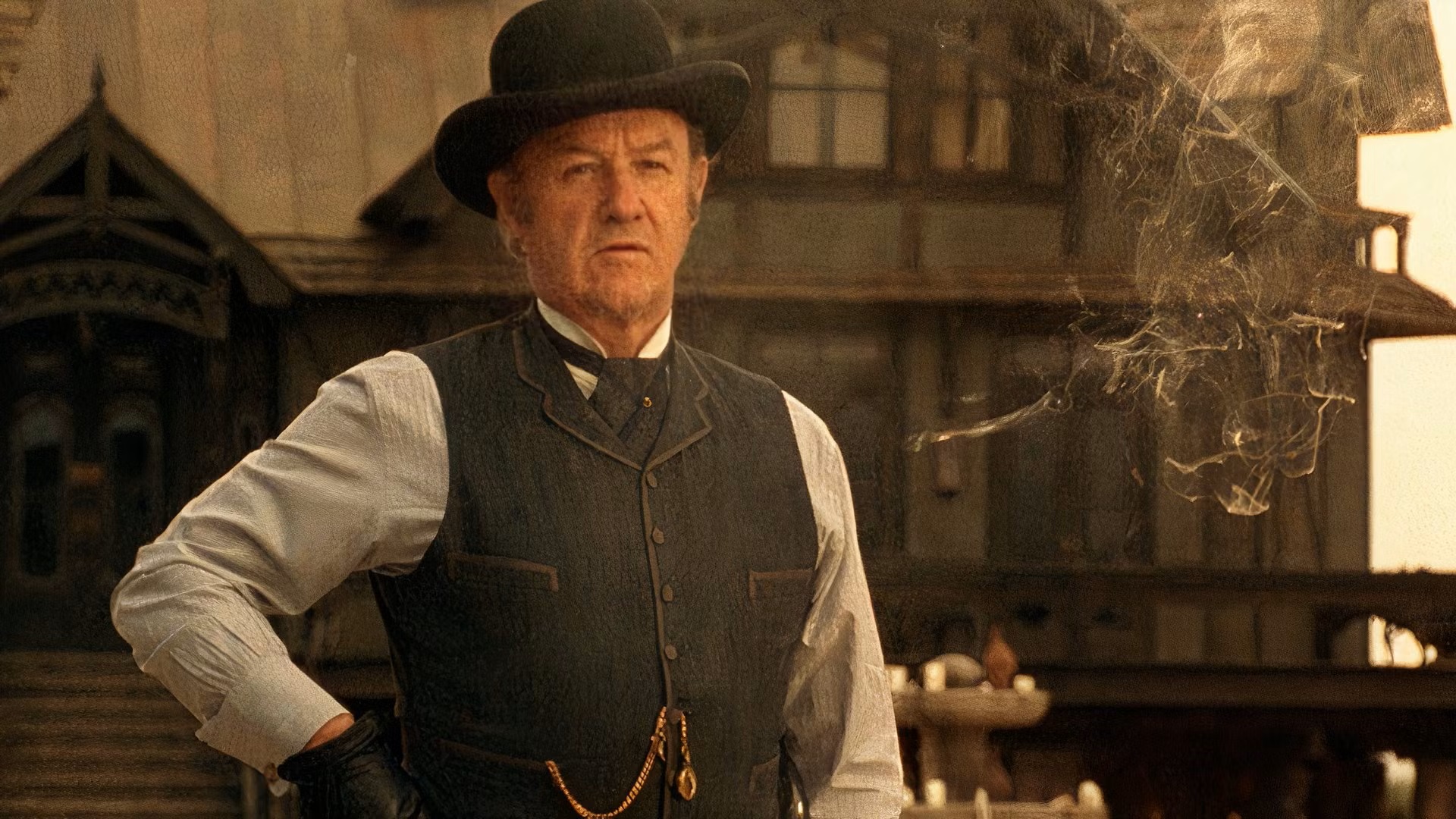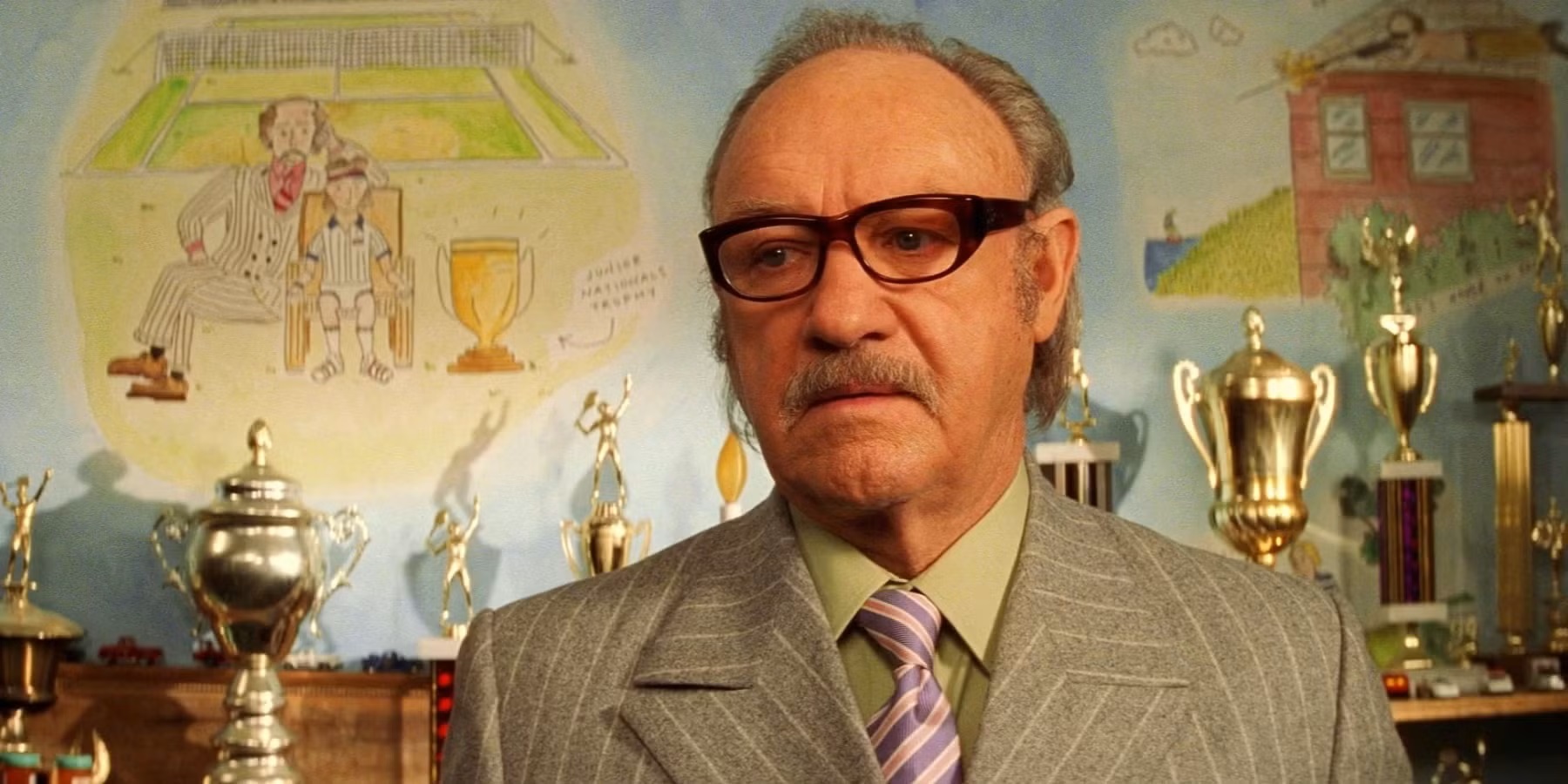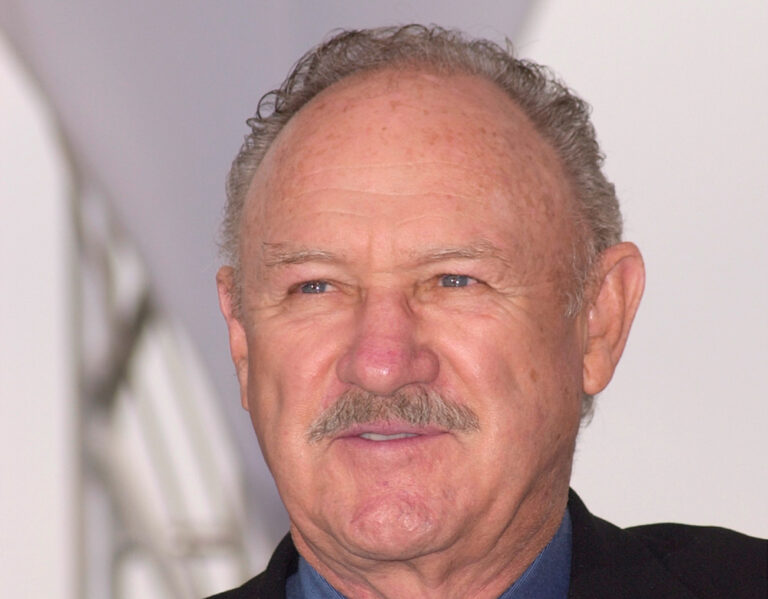Hackman made a career out of playing men we recognize: men who are flawed, driven, stubborn, wounded, sometimes cruel, often conflicted, always human. Whether he was on the right side of the law or the wrong side of morality, his characters felt real because they were never merely types. He could be gruff and unlikable, heroic yet compromised, hilarious and exasperating in the same breath. And even when he played outright villains, there was always something disarmingly alive beneath the menace. He was the kind of actor who could command an entire scene with a single look, a raised eyebrow, a deliberate pause—every movement precise, every choice deliberate, every performance unforgettable.
As we celebrate the legacy of a great actor, here are some indelible moments of Gene Hackman’s storied career.
The Birth of Gene Hackman the Leading Man: ‘The French Connection’
For all of his great performances, the film that cemented Hackman’s name in the annals of cinema history was “The French Connection” (1971). As Popeye Doyle, the hard-edged, racist, obsessive narcotics cop, Hackman turned what could have been a one-note antihero into one of the most compelling figures in crime cinema. His Doyle is not a noble warrior against drugs—he’s a man possessed, a character who barely seems to stop moving, thinking, or pushing forward. Hackman infused Doyle with a rawness and unpredictability that elevated William Friedkin’s film beyond mere procedural thrills. He won his first Academy Award for the performance, but more than that, he earned immortality in the lexicon of screen legends.
Doyle is an unlikable character by design. He isn’t a smooth-talking detective with a heart of gold—he’s rough, messy, and morally compromised. And yet, Hackman made him magnetic. The iconic chase scene under the elevated train isn’t just gripping because of Friedkin’s direction; it works because Hackman sells Doyle’s desperation and tenacity with every frame. He made us believe in this man’s obsession, made us root for someone we probably wouldn’t want to meet in real life. That’s the power of a great actor at work.
The Art of Villainy: ‘Unforgiven’ and ‘The Quick and the Dead’

A sign of a great actor is when audiences don’t just hate a villainous character, but truly loathe them. And in “Unforgiven” (1992), Hackman’s Little Bill Daggett is a villain for the ages. He plays the corrupt sheriff with a disarming folksiness that makes his brutality all the more terrifying. This is not a mustache-twirling antagonist but a man who genuinely believes in his own righteousness. Hackman’s ability to play evil without overplaying it won him his second Oscar, a testament to his brilliance at making us despise Little Bill and yet—somehow—understand him.
For me, however, “The Quick and the Dead” (1995) was my introduction to Hackman. Watching it on a rental VHS as a kid, I didn’t think about acting; I just knew I hated his character, John Herod. He was cruel, smug, and utterly dominant over the poor souls in the town he ruled. And it wasn’t until years later that I realized: that was Gene Hackman doing his job at the highest level. Just as in “Unforgiven,” he played the heavy not as a caricature but as a living, breathing force—one whose authority felt unshakable until the moment it wasn’t.
Through all these, Hackman had an uncanny ability to disappear into his villains without losing his innate humanity. That’s what made him so formidable on-screen. Unlike actors who played bad guys with a wink to the audience, Hackman didn’t need to announce his menace. He simply existed within these characters so fully that they became unforgettable.

The Superman of ‘Superman’
Most actors might have scoffed at the idea of playing a comic book villain in the late ’70s, but Hackman never phoned in a performance, no matter the material. As Lex Luthor in Richard Donner’s “Superman” (1978) and its sequels, he found the perfect balance between camp and menace, intelligence and absurdity. Whether under Donner’s steady hand or Richard Lester’s more slapstick approach in “Superman II,” Hackman never lost sight of Luthor’s arrogance, charm, and dangerous ambition. Even in an era where superhero movies were rare, Hackman made his mark, creating one of the most enduring portrayals of a comic book villain in film history.
Luthor, in Hackman’s hands, is a man who revels in his own intelligence. He’s the smartest man in the room and enjoys proving it. There’s an undercurrent of real danger in his performance—Luthor isn’t just a joke, even when he’s cracking wise. He’s a man who genuinely believes he’s the rightful ruler of the world, and that makes him all the more dangerous. Few actors could have pulled off that balance, but Hackman made it look easy.
The Contradiction at the Heart of ‘The Royal Tenenbaums’
By the time Hackman played Royal Tenenbaum in “The Royal Tenenbaums” (2001), he had already semi-retired from acting. Yet, his performance in Wes Anderson’s film is nothing short of masterful. Royal is selfish, conniving, and wholly irresponsible; but in Hackman’s hands, he is also irresistibly charming, even lovable. I mean, who can forget his toe-curling remark to his grandsons, “I’m very sorry for your loss. Your mother was a terribly attractive woman”?
Hackman gave Royal a wounded depth beneath the bluster. He made us see not just the cad, but the man who genuinely wished he could have been better. It’s the kind of performance that lingers, that stays with you long after the credits roll. For what it’s worth, I firmly believe that Anderson’s career would not have reached the heights it did without Hackman’s performance anchoring the film. He embodied Anderson’s trademark contradiction: characters who are deeply flawed yet strangely endearing. And when the film’s epilogue shows Royal’s fate, it’s impossible not to feel the weight of everything Hackman has done, both on-screen and off.
The Man Behind the Roles

For all the menacing, domineering, and often violent characters he played, Gene Hackman himself was, by all accounts, a quiet and private man. He avoided the Hollywood scene, preferring a life of solitude with his wife, Betsy Arakawa, in New Mexico. He retired from acting in 2004, choosing to focus on writing novels rather than continuing the endless cycle of Hollywood productions. His fiction work, often historical in nature, showed a different side of his creativity—one less performative but no less compelling. He never sought out public appearances, instead embracing a reclusive life that suited his private nature.
Hackman never made a grand farewell, never indulged in a late-career victory lap—he simply walked away, content with the work he had done. In an age when actors often extend their careers long past their prime, Hackman left at the top of his game, letting his legacy speak for itself.
And perhaps that, more than anything, speaks to the man he was: committed to his craft, uninterested in spectacle, and always, always authentic.
The End of an Era
The loss of Gene Hackman is a seismic one for cinema. He was one of the last great actors of his generation, a performer who never coasted, never settled, never gave anything less than his absolute best. His career spanned five decades, yet he never once felt like a relic—his performances remained timeless, his characters indelible.
He was, in every sense of the phrase, an actor’s actor. A legend’s legend. And though he has left us, his work will never fade. It will live on, just as electric, just as vital, just as unforgettable as the man himself.
Rest in peace, Gene Hackman. You had a good life, didn’t you?


